Semester 1
Semester Topic: Motor Control Theory and Practice
Start Date: Rolling Admissions each Semester
Course Description: This course and lab component will focus on the examination and treatment of patients with problems related to balance, mobility, and upper extremity function, based on evidence-based practice. The course will also discuss the progress in motor control and the effects of age, disorder, and rehabilitation.
Semester 2
Semester Topic: Pediatric Manual Therapy
Start Date: Rolling Admissions each Semester
Course Description: This course and lab component examines the present comprehensive conceptual approach to the subject of manual therapy for children of different ages. The course will also focus on the relationship between the neuromusculoskeletal structure and function at different stages of development. It will also outline the prevention of problems during child development and effective treatment and management. Discussions and labs will also cover the pediatric spine.
Semester 3
Semester Topic: Pediatric Movements
Start Date: Rolling Admissions each Semester
Course Description: The course and lab component will explore the motor control, learning, and development of children with movement disorders. The course will assist the student in increasing their knowledge of the effectiveness of intervention. It will also examine topics on motor control for posture and prehension, motor learning challenges of children with movement dysfunction, predictors of standing balance in children with cerebral palsy and the reliability of a clinical measure of muscle extensibility in preterm and full-term newborn infants. Controversial therapies for developmental disabilities will also be discussed.
Semester 4
Semester Topic: Pediatric Advanced Neuromuscular Intervention
Start Date: Rolling Admissions each Semester
Course Description: This course and lab component will focus on the comprehensive physical therapy interventions for children with neurologic conditions. The course will examine the pathophysiology of neurologic deficits and possible rehabilitation interventions for improving movement outcomes. Biofeedback research, applications, clinical procedures and biomedical instrumentation will also be discussed.
Semester 5
Semester Topic: Pediatric Advanced Spasticity Management
Start Date: Rolling Admissions each Semester
Course Description: This course and lab component will focus on the clinical evaluation and management of spasticity. Current concepts on pathophysiology of chronic neurologic spasticity and discussion on the complex medical and surgical management will also be discussed.
Semester 6
Semester Topic: Capstone in Pediatrics
Start Date: Rolling Admissions each Semester
Course Description: This course will focus on the learner developing a capstone project. The learner will integrate the content that they have covered throughout the curriculum. The course will allow the learner to analyze and apply the information to a specific clinical in-depth issue while adding to the learner’s professional body of knowledge via manuscript or professional meeting presentation.


